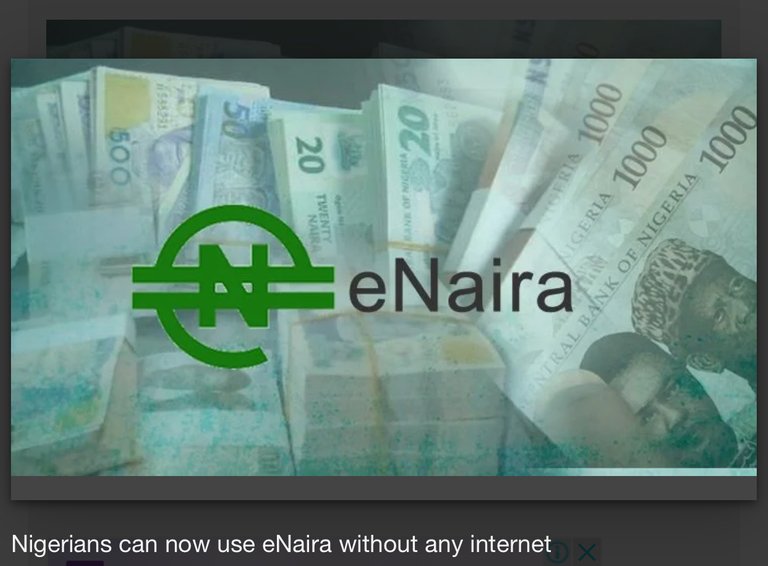The Central Bank of Nigeria has unveiled the Unstructured Supplementary Service Data (USSD) code for its CBDC eNaira it has been developing for sometime these also, indicating that Nigerians without internet-enabled mobile devices can use eNaira for their everyday offline transactions.
This move by the apex bank to use the USSD as the offline medium channel for the eNaira transcations was based on the already awareness of mobile phones and the understanding of users in carrying out transcations through mobile devices the unique features of our economy at the moment needs eNaira for the government to effectively regulate the cryptocurrency technology, taking into account the fact that, as of right now, about 50% of adult Nigerians especially in the northern part of the country are not fully using the current banking system, and are therefore not eligible for formal financial services offered by banks.
The eNaira’s initial launched phase was concentrated on banked customers with smart devices which has internet connection enabe, while this second phase is on financial inclusion of the unbanked, according to the CBN Governor, who revealed this at the grand conclusion of the eNaira Hackathon.
To promote financial inclusion in the recent emerging cryptocurrency market this move is very necessary to give Nigerians access to unlimited opportunities through financial services offered by blockchain technology using cryptocurrency as a case study for futurist form of money , the new code *997# was introduced too bridge the gap between online users and offline users.
In order too maintain the status quote and avoid confusion “It captures the slogan ‘same naira', with more utility and possibilities ’, and designed to positively impact the lives of Nigerians, and transform the economy too meet the world standard.”
The eNaira is expected to enhance inclusion,
- Support poverty reduction
- Enable direct welfare disbursement to citizens
- Support a resilient payments ecosystem
- Improve availability and usability of central bank money
- It would lower the cost of processing cash
- Boost the effectiveness of cross-border transfers
He estimates that 35.9% of Nigerians do not have access to formal financial services, and around 45% do not have bank accounts.
